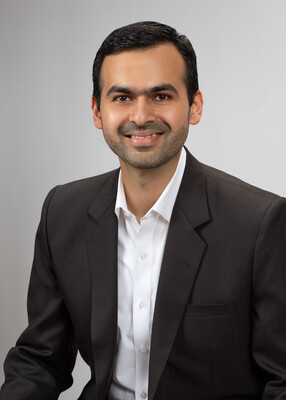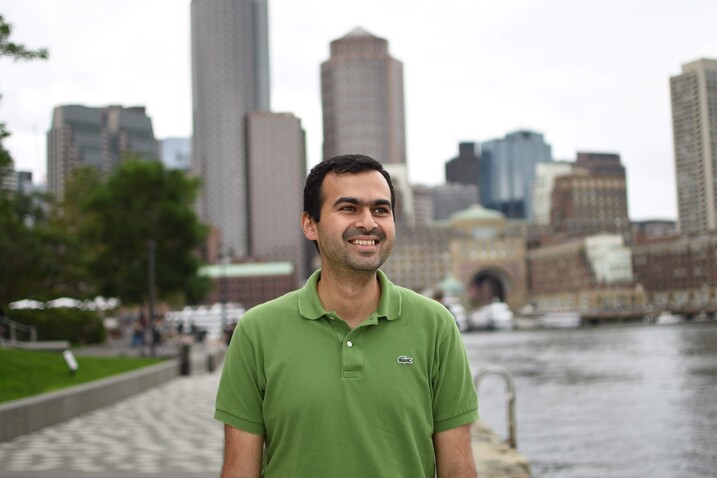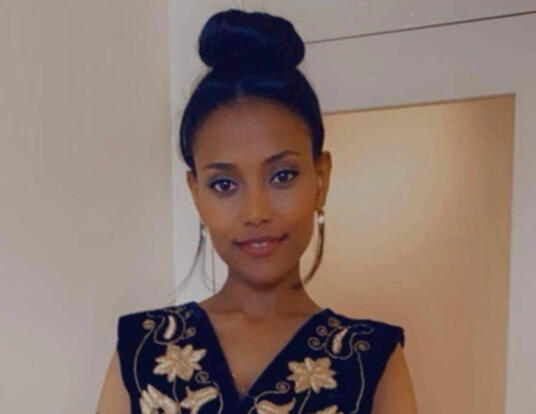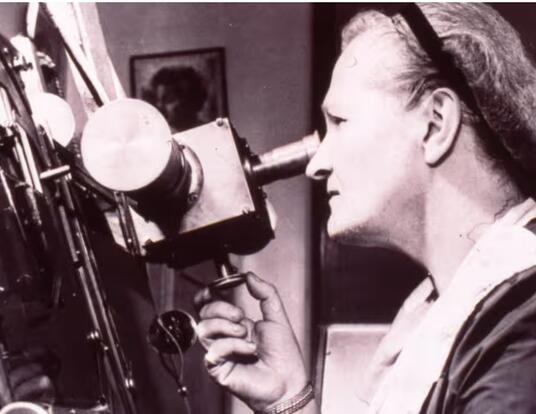Voting Without Your Wallet
Dixit investigates what makes Indians care —or not—about inequality

Research at Risk: Since World War II, universities have worked with the federal government to create an innovation ecosystem that has yielded life-changing progress. Now much of that work may be halted as funding is withdrawn. Find out more about the threats to medical, engineering, and scientific research, as well as how Harvard is fighting to preserve this work—and the University's core values.
While studying economic inequality in India, researcher Akshay Dixit spoke with the wealthy director of an infrastructure firm. He asked the executive if he thought entrepreneurs could succeed without being born into a family that was already prominent in business. The man replied that it was almost impossible to run a successful enterprise without family connections. He acknowledged that the situation was unfair but said “that’s just how things work.”

Dixit posed the same question to the taxi driver who picked him up at the office of the infrastructure firm director. He was surprised by the answer. Although the driver was at the opposite end of the income distribution, he gave more or less the same response as the business executive. In fact, he seemed to be even less concerned with fairness than the wealthy professional.
“I asked the taxi driver if he thought it was unfair that people pass on their businesses to their children without much of a conversation about merit or qualifications,” Dixit said. “He said, ‘Well of course they are going to do that and it’s fine. It’s their business and it’s their kids.’”
Economic inequality is growing as fast as the Indian economy. And, before the COVID-19 pandemic, the Indian economy was growing really fast—as much as 8.5 percent a year. As a PhD student in political economy and government at Harvard’s Graduate School of Arts and Sciences (GSAS), Akshay Dixit explores how people perceive the growing gap between the rich and poor. In so doing, he hopes to shed light not only on the economics of India but also its politics—particularly the way that ethnic identity factors into pocketbook concerns.
I asked the taxi driver if he thought it was unfair that people pass on their businesses to their children without much of a conversation about merit or qualifications. He said, “Well of course they are going to do that and it’s fine. It’s their business and it’s their kids.”
–Akshay Dixit
Different Notions of Economic Difference
The richest 10 percent of individuals in India held over 80 percent of the nation’s wealth in 2017, according to the World Bank. Meanwhile, about 60 percent of the country’s 1.3 billion people lived on less than $3.10 a day—numbers that increased dramatically during the global COVID-19 pandemic.
Despite the raging income inequality, Dixit says that the redistribution of income is not a prominent issue in Indian politics, even as calls for economic reform are common in other countries—the “yellow jacket” protests in France, for instance.
“What’s interesting is that there’s a lot of debate about various types of welfare programs, but somehow welfare and redistribution are regarded as distinct from one another,” he says. “My impression is that people across the income spectrum don’t often think about precisely to what extent welfare programs are or aren’t redistributive. The implication is that the redistribution of income just isn’t as widely discussed.”
In much of the developing world, people who believe that hard work leads to success are more likely to say that the state should push for closing the gap between the rich and the poor.
–Akshay Dixit
In Western Europe and North America, Dixit notes, those who believe that hard work leads to success tend to be less supportive of economic redistribution measures. They vote for less taxation and less social welfare spending by the national government. On the other hand, those who believe that social and economic factors—for example, family connections and ethnic identity—matter at least as much for success as individual hard work tend to want the state to play the role of equalizer, raising taxes on the wealthy and funding programs to assist the underprivileged. In India and other developing countries, however, Dixit says that an alternative mindset has emerged regarding the role of the state in addressing economic inequality.
“In much of the developing world, people who believe that hard work leads to success are more likely to say that the state should push for closing the gap between the rich and the poor,” he says. “The core assertion of my research is that what people mean when they talk about economic redistribution and hard work may be very different.”
Mobility and Ethnic Politics
Dixit points to two factors that might be the cause of the difference in the ways that those in the West and India think about inequality. The first has to do with how people in the two parts of the world see the government as an avenue for social mobility.
“In the United States, when people want to achieve economic prosperity, they exert their effort in some market and get a reward for that effort. The market is seen as the avenue for upward mobility,” Dixit says. “In India and other developing countries, the avenue for upward mobility is often the state, for instance, through government-provided credit or public sector jobs. So, if I am from that kind of society and I think that hard work brings success, I should advocate for the state to provide more opportunities for jobs in government.”
Additionally, Dixit says that the role of family and ethnic background also play into people’s views on inequality.
“First, there’s a fair amount of redistribution that occurs within ethnic groups in India, particularly caste groups,” he explains. “People often help one another out, so that might change how people see the state as a provider for redistribution. There’s also a lot of ethnic politics. People want to see themselves and others from their group in the government and higher education, so policies for affirmative action are widely debated as well as demanded.”
In his research, Dixit is also exploring the possibility that Indians don’t necessarily compare themselves to those in upper-income strata as much as to others in their ethnic group.
“If this is accurate, then people probably won’t care as much what the national income distribution is, they’ll think in terms of narrower reference groups defined by their ethnicity,” he says. “This matters because ethnic groups aren’t all similarly spread across the income distribution. Some have historically been disadvantaged compared to others, and people from those groups are more likely to occupy a lower rung on the income ladder.”

As India’s economy grows and inequality is exacerbated due to factors like the global pandemic, Dixit says that issues like unemployment loom larger but do not necessarily translate to a shift in politics. Ethnic alliances tend to result in some demands for redistributive reform, but typically not along class lines.
“There tends to be a lot of thinking in terms of ethnic groups in Indian politics,” Dixit says. “An important question is, ‘Under what circumstances do people’s class identities become more politically salient than their ethnic identities?’ I’m trying to get a better understanding of the way these identities shape beliefs about the economy."
Dixit hopes that his work can advance understanding among scholars and policymakers of how citizens engage with the state in the world’s largest democracy—and beyond.
“What do people think is fair?” Dixit asks. “What role do they feel the government ought to play in their lives? These questions have been made all the more pressing by a pandemic that exacerbated existing inequities and inflicted disproportionate suffering on groups that were already disadvantaged. I hope my work will help us make sense of some of these issues.”
Photos Courtesy of Akshay Dixit
Get the Latest Updates
Join Our Newsletter
Subscribe to Colloquy Podcast
Simplecast





